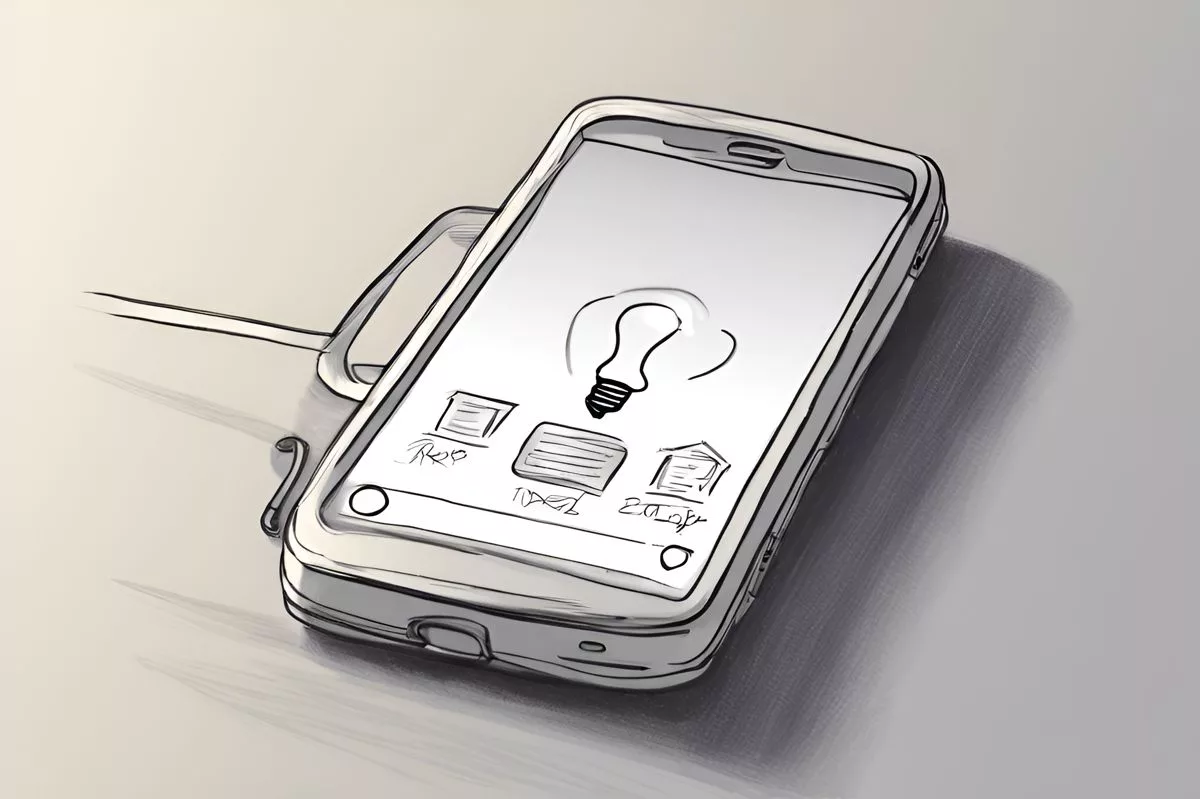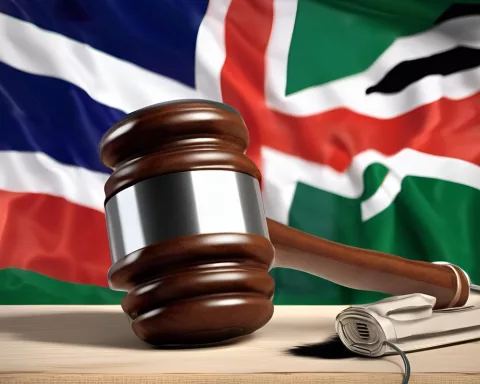Kenneth Nkosana Makate’s legal battle with Vodacom over his “Please Call Me” invention is a fascinating story of innovation and justice in the telecommunications industry. The case could lead to Vodacom paying Makate a minimum of R29 billion, making him South Africa’s third-richest individual and the wealthiest black African. Vodacom plans to contest the ruling, potentially resulting in staff reductions and inflated prices. Makate’s journey underscores the importance of safeguarding intellectual property and fighting for what is rightfully deserved.
The story of Kenneth Nkosana Makate and his ‘Please Call Me’ invention sheds light on the intricacies of corporate innovation and legal disputes within the telecommunications industry. Makate’s legal battle with Vodacom for a minimum of R29 billion has implications for the mobile operator, potentially leading to staff reductions and inflated prices. If successful, Makate will become South Africa’s third-richest individual and the wealthiest black African, highlighting the revolutionary impact of his innovative contribution.
The Unfolding Tale and its Stakes
The story of Kenneth Nkosana Makate is enthralling and captivating, shedding light on the intricacies of corporate innovation and the labyrinth of legal disputes within the telecommunications industry. The crux of Makate’s chronicle is his ‘Please Call Me’ invention, an ingeniously simple concept that underpins an elongated legal struggle with Vodacom, the telecommunications behemoth. What hangs in the balance? A jaw-dropping R29 billion.
Makate, previously serving as a finance manager at Vodacom, is distinguished for introducing the rudimentary idea that was later honed into the ‘Please Call Me’ product. Despite his name not being linked to the evolution or introduction of this product, the case leans on the understanding that Makate’s then-manager pledged to reward him for his brilliant concept. Should he secure the R29 billion, he is set to become the fifth wealthiest individual in South Africa, rubbing shoulders with business celebrities such as Johann Rupert, Nicky Oppenheimer, Koos Bekker, and Patrice Motsepe.
The Legal Mandate and its Implications
South Africa’s Supreme Court of Appeal (SCA) has directed Vodacom to award Makate a minimum of R29 billion for his ‘Please Call Me’ invention. Court documents available from MyBroadband confirm that the Supreme Court has ordered Vodacom to remunerate Makate an amount ranging from R28.99 billion to R55.37 billion. The judgment dictates that Makate is entitled to receive between 5%-7.5% of the total revenue the ‘Please Call Me’ product has generated from March 2001 to the judgment date.
Interestingly, Vodacom plans to contest the Supreme Court’s decision in the Constitutional Court. If Vodacom’s attempt to overturn the ruling falls flat in the Constitutional Court, it could potentially result in staff reductions and inflated prices at the mobile operator.
Makate’s Potential Fortune and Its Impact
Makate’s prospective wealth not only promotes him among South Africa’s wealthiest but also sets him above several renowned business tycoons. He stands to surpass Capitec founder Michiel Le Roux and consumer retail heavyweight Christo Wiese. In case Makate receives the higher-end ‘offer’ of R55.37 billion, he will rise to become the country’s third-richest individual.
This fortune would simultaneously make him the wealthiest black African, propelling him above Motsepe. The colossal financial settlement emphasizes the importance of Makate’s innovative contribution, highlighting its revolutionary effect in the telecommunications industry.
Makate’s Journey and Lessons to Learn
Makate’s journey is riddled with legal challenges and hurdles. Throughout the persistent court case between him and Vodacom, Makate has voiced his plans to relocate to India for meditation once the case concludes. His aspiration for a peaceful and calm sanctuary mirrors the turbulent and demanding time he has weathered.
Makate’s chronicle underlines the complex dynamics of corporate innovation and the subsequent legal disputes that frequently follow. It’s a fascinating account of a modest idea transforming into a multi-billion rand product and the relentless pursuit of justice by the idea’s original author. It’s a tale that will surely continue to evolve, and one that can motivate future innovators to safeguard their intellectual property and fight for what they rightfully deserve.
Who is Kenneth Nkosana Makate and what is his invention?
Kenneth Nkosana Makate is a former finance manager at Vodacom and the inventor of the “Please Call Me” product, a simple concept that allows mobile phone users to send a free text message requesting a call back from the recipient.
What is the legal battle between Makate and Vodacom about?
The legal battle is over Makate’s claim that his manager at Vodacom promised him a reward for his idea for the “Please Call Me” product, which he never received. Makate took the case to court and won a minimum of R29 billion in compensation from Vodacom.
What is the implication of the court ruling for Vodacom?
If Vodacom loses the case, they will be required to pay Makate a minimum of R29 billion in compensation. Vodacom plans to contest the ruling in the Constitutional Court, which could potentially result in staff reductions and inflated prices at the mobile operator.
What is the potential fortune that Makate may receive?
Makate stands to receive a minimum of R29 billion in compensation from Vodacom, which could potentially rise to R55.37 billion. If he receives the higher amount, he will become the country’s third-richest individual and the wealthiest black African.
What lessons can be learned from Makate’s journey?
Makate’s legal battle with Vodacom underscores the importance of safeguarding intellectual property and fighting for what is rightfully deserved. It also highlights the complex dynamics of corporate innovation and the subsequent legal disputes that frequently follow. Makate’s journey can motivate future innovators to take steps to protect their intellectual property.
What is the impact of Makate’s invention on the telecommunications industry?
Makate’s “Please Call Me” invention has had a revolutionary impact on the telecommunications industry, transforming a simple idea into a multi-billion rand product. The legal battle over his invention sheds light on the intricacies of corporate innovation and the labyrinth of legal disputes within the industry.












